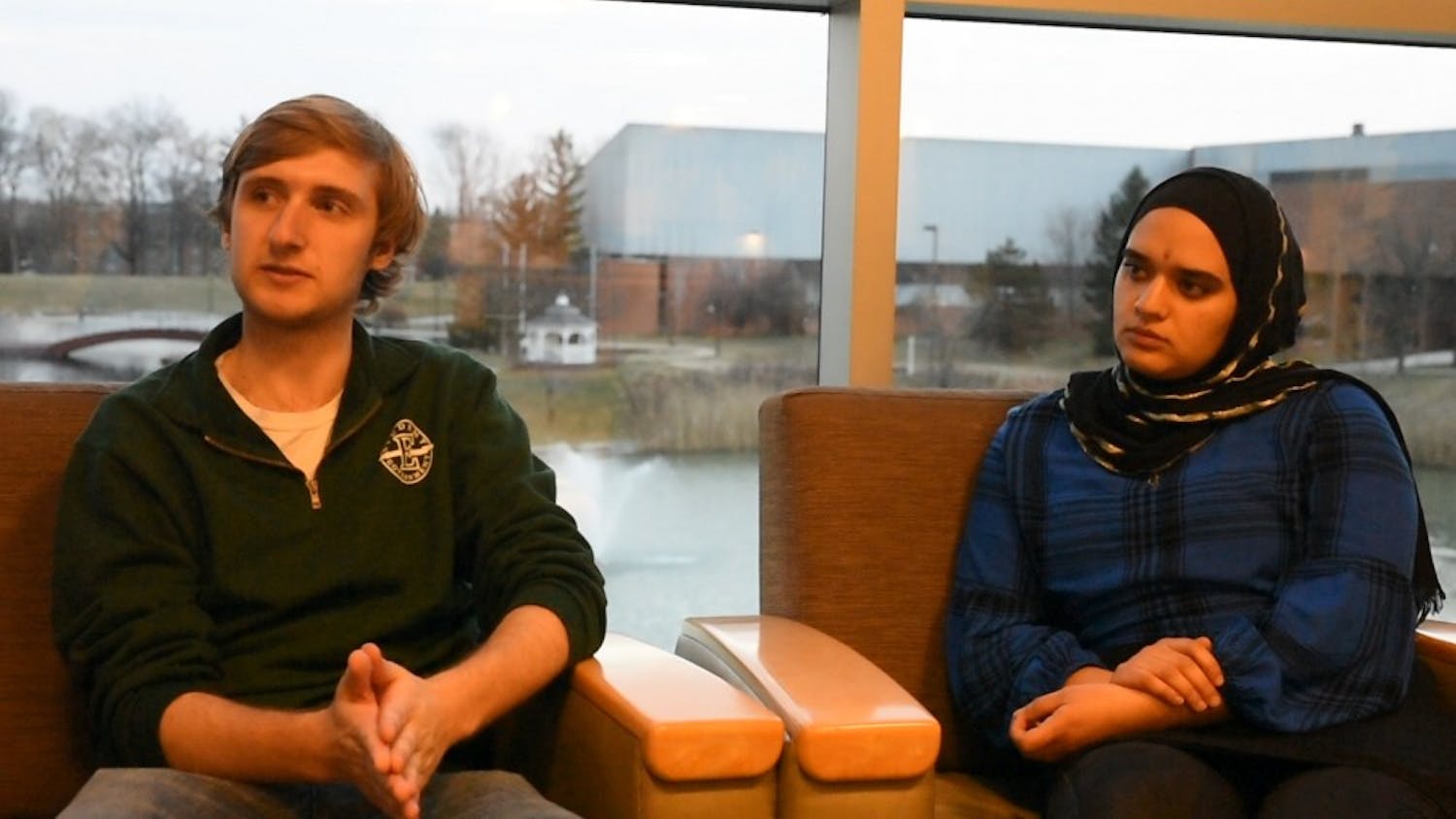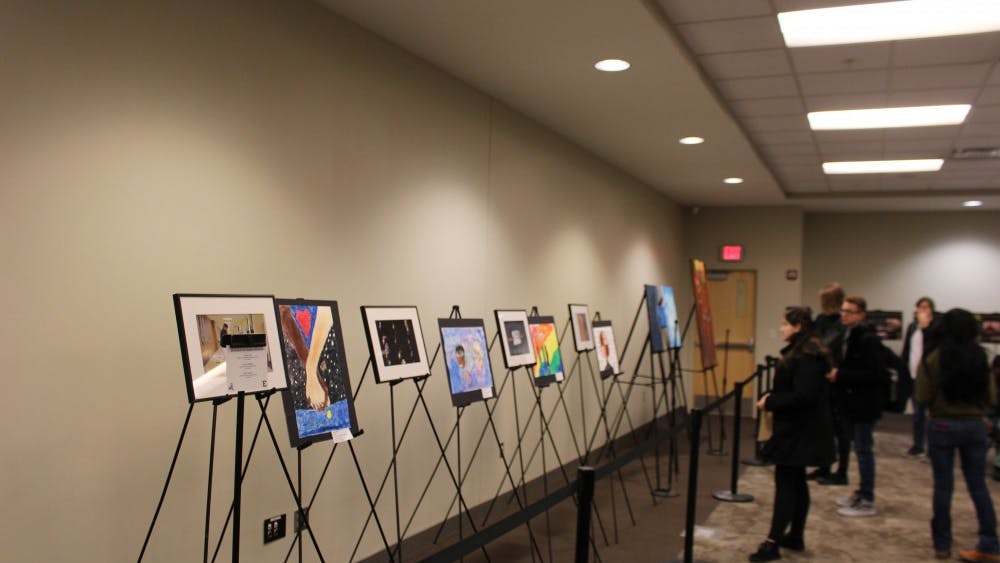Most students are prepared to face the expected stresses of college such as staying up late to study for exams or doing copious amounts of homework. However, some students have additional worries on their plate. With college tuition on the rise across the country, reports of food and housing insecurity among college students are on the rise, too.
At Eastern Michigan University, resources are becoming more limited and the number of students who fall under the housing instability category are growing.
Statistics provided by Swoops Pantry, EMU’s on campus food pantry, show that 56% of students who completed the intake form for the fall 2018 - winter 2019 school year reported housing instability. That number was a drastic increase from the 16.63% of pantry users who completed the intake form during the fall 2016 - winter 2017 school year and the 16.93% from the fall 2017 - winter 2018 school year.
Joelle Summers, a graduate assistant who works at Swoops Pantry, said she suspects the increase was due to the pantry re-defining what housing instability means based on the Wisconsin Hope Lab study that was published in 2018.
“In the previous two years, we just asked the question ‘Are you currently experiencing housing instability?’ Summers said. “Many students may not know exactly what it means to be housing in-stable … Since we have reconstructed our housing instability question on our intake, we have seen the percentage jump.”
Studies show that housing insecurity among college students is rising across the country. In April of 2019, The Hope Center for College, Community and Justice at Temple University surveyed 86,000 students from 123 colleges across the country. Their study found that 45% of college student’s experienced food insecurity while more than half experienced housing insecurity.
The study defined housing insecurity as not having enough money to pay rent or having to borrow money from friends or family to help pay bills. A person could also fall into the category by not having a regular sleeping arraignment, including couch surfing or sleeping in a place not meant for regular housing, even for just one night.
At EMU, the financial aid office specifically tracks students who face housing insecurity by looking at FAFSA applications. Results show that .3% of EMU students indicated they were homeless, at risk for being homeless or receiving TANF (Temporary Assistance for Needy Families) during the 2018-2019 aid year. That equates to 45 students out of the 14,830 who completed FAFSA applications.
That’s 45 students roaming around a campus with minimal resources. As tuition continues to increase and the university looks for ways to make up a budget deficit, struggling students are slipping through the cracks.
Unlike other colleges in the state such as Michigan State University and Wayne State University, EMU does not currently have a program dedicated to assisting students who are facing homelessness or housing insecurity.
At one point in time, the MAGIC program was the place to go for students dealing with housing and food insecurity on EMU’s campus. The program, which launched in 2013, assisted students in various ways such as purchasing textbooks, helping with rent payments and providing food and clothing.
As of 2019, the university is phasing out that portion of the program due to lack of funding.
According to Elise Buggs, director of academic success partnerships at EMU, the MAGIC program is funded by a grant specifically for students who have come from the foster care system.
“We do try to point the students in the direction of services available in the community if they do not meet the requirements of our particular grant,” Buggs said. “That’s about the extent to which we are able to commit to assisting the students … Unfortunately we do not have as many (resources) as we would love to have, but we just don’t have the personnel or funding to persist in that area.”
MAGIC Coordinator Le’Shay Webb said there are roughly 20 students involved in the MAGIC program, some of which are housing insecure, but they do not meet the foster care requirement.
“Within those 20 students we do have a few who don’t meet the foster care requirement,” Webb said. “They are housing insecure, but without proper funding to support them, we’re running into all types of barriers”
Despite the programs foster care requirement, Webb said more often than not students experiencing homelessness are the ones reaching out for help.
"It’s very rare that we have students who have experienced foster care reaching out,“ Webb said. "Usually you see more students who have experienced homelessness walking in and reaching out.”
For Ramone Williams, a homeless student at EMU from 2015 to 2016, the MAGIC program was his go-to resource.
“MAGIC was a big help for me,” Williams said. “They pushed me to get a place, they provided me with food, they did workshops ... It was nice.”
Williams’ day as a homeless student would start around 7 a.m. with a walk from his car, which would be parked in a free lot several miles from campus, to Warner Gymnasium for a quick shower. Then he would head to class; keeping to himself and blending in with the rest of his peers. At night he would work as a SEEUS escort on campus before heading back to his car to sleep and repeat the cycle over again the next day.
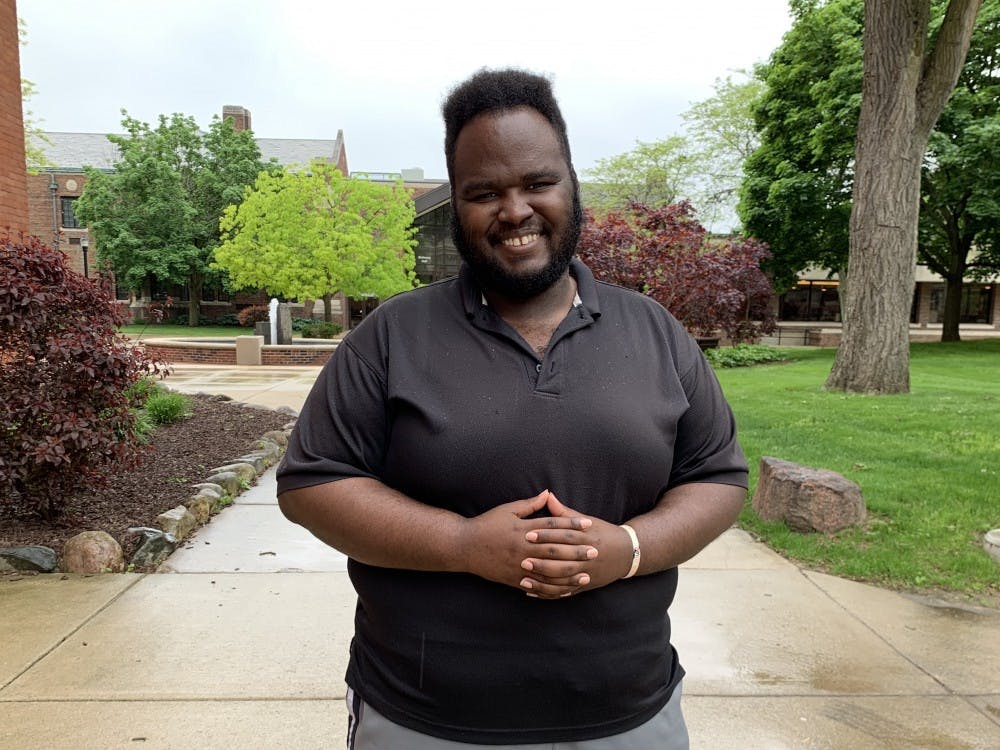
Ramone Williams used his grandmother as motivation to finish his college education. However, unable to pay for his tuition and rent, Williams became homeless for one year.
Despite the daily struggle, Williams never told a soul about his situation.
“I didn’t want anyone on campus to know,” he said. “I thought maybe I’d get in trouble or get my FASFA taken away if they found out. I didn’t tell anyone. I kind of felt shameful about it anyways. I did a really good job of hiding it from people.”
Williams said he was determined to graduate for his grandmother who pushed him to go to school everyday as a child. However, he could not afford to pay tuition and rent. With nowhere to go, he decided to devise a plan that would allow him to simply “get by” while finishing his college career.
“I made very good use of the things on campus or in the community,” Williams said. “The main thing was when classes or my shift would end, I’d have a $5 or $10 budget and would go to Meijer to grab a handful of things that I needed to get me through to the next day … The rest of it was picking up free food, whether they had free hot dogs at the student center or food from the pantry at MAGIC.”
One of the main reasons Williams wants to tell his story is to inspire change so no college student has to go through the struggle he did. During his time of need, Williams said he was disappointed by EMU’s lack of availability.
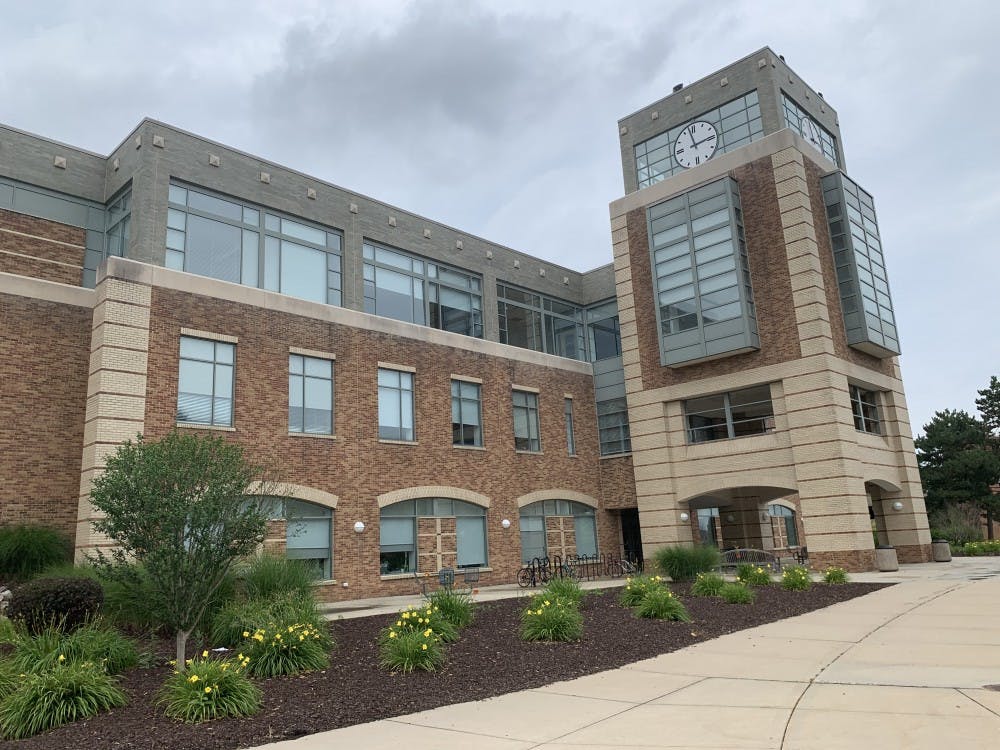
Ramone Williams, who was homeless from 2015 to 2016 while attending EMU, would sometimes sleep in the library. All buildings on campus were locked during winter break, leaving some students with no place to go.
When not sleeping in his car, Williams said he would sleep in the library or in the halls of Pray-Harrold. However, during the cold weeks over winter break that was not an option. Williams was left to sleep in his car in freezing temps.
“The main thing I was upset about was that the buildings weren’t open during winter break,” he said. “The entire thing was closed and I’m like, ‘There should be something available for students who might not have a place to go, even international students.’ I thought it was unfair.”
As for paying for his education, Williams said he did receive a $1,000 scholarship to help offset the costs of college during his senior year, but most of his financial aid package was loans in which he had to pay back. In 2014, Williams took a break from school in order to take care of his grandmother back home in Flint. The Pell Grant and other scholarships he was awarded had expired by the time he returned a year later.
According to EMU Financial Aid Director Donna Holubik, the university does not offer any special scholarships specifically for students facing homelessness. However, she said many of the available scholarships do take financial need into consideration.
“Many of our scholarships, such as the EFOS and some of the University’s endowed programs take financial need into consideration,“ Holubik said. "There are some federal funds that supplement the Pell grant. Although limited, those funds are awarded to students who demonstrate a high level of need.”
For financially stricken students, Swoops Pantry is the biggest resources on campus and is available to any student or staff member regardless of income or socioeconomic status. The pantry, located at 104 Pierce, is open Monday and Tuesday from noon to 5 p.m. and Wednesdays from noon to 6:30 p.m.
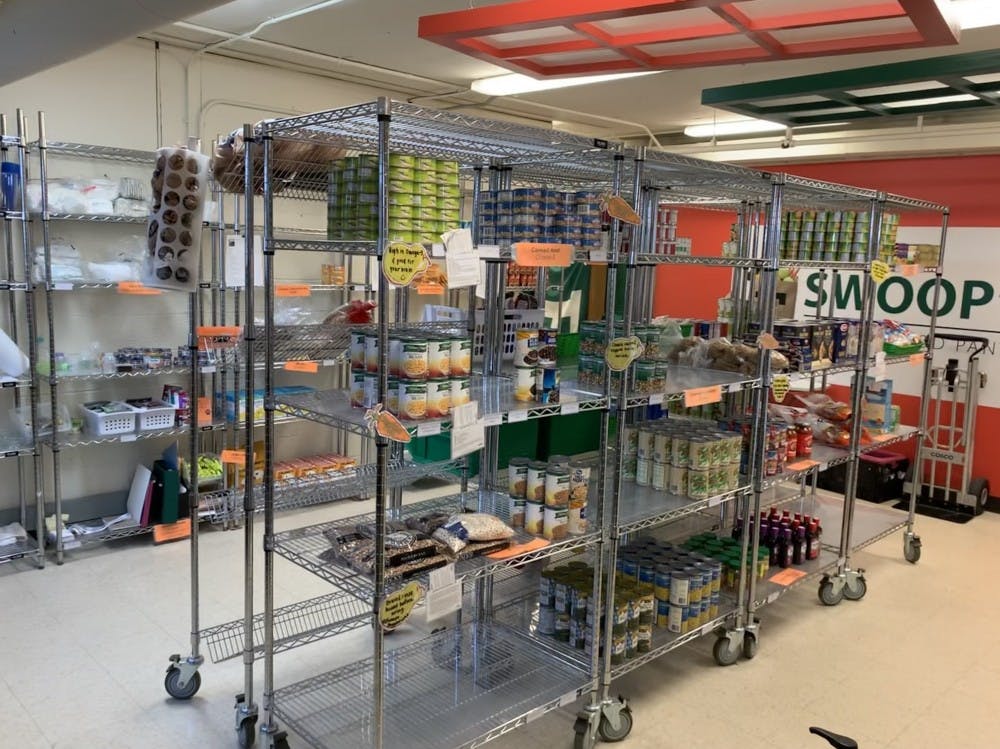
Swoops Pantry, located inside Pierce Hall, is the only resource available on campus to assist students facing financial difficulties.
In addition to food, the pantry offers several items such as diapers, baby food, feminine hygiene products and sexual health items. Although all bags are weighed upon leaving the pantry, there is no weight restriction.
For additional assistance, students are left to turn to resources within the community.
Ozone House is one of the primary resources in the community available for the homeless. The organization
has a drop in center (102 N. Hamilton) where young people up to the age of 20 can go for support. Ozone House offers meals, computer access, showers and laundry services.
Ozone House also offers screening for people ages 17 1/2 to 24 to assess what their needs are and locate housing opportunities. Screenings are done Monday through Friday at the drop in center on Hamilton between the hours of 1 to 3 p.m.
EMU used to collaborate with Ozone House through a program called MORE Support, which provided therapy for students on campus. However, as of April 2019, that service is no longer available.
“Ozone House lost that grant, so we lost our therapists in April,” said Le’Say Webb, MAGIC Coordinator. “They’re trying to secure funding for it, but right now it’s no longer available to students.”
A representative from Ozone House could not be reached for comment about when the program will return.
The Peace House, Ypsi, is another resource in the community that offers short term respite for those who need a place to sleep, do laundry and grab something to eat. The home is a private residence, located at 706 Davis St.
Sheri Wander, who lives in the house, said people can stay for up to four nights.
“We have two bedrooms; one with two beds, one with a trundle bed and a couch in the living room,” Wander said. “If there is not room for them to sleep, we will try to hook them up with a tent or another person who can help them.”
Wander recommends those interested in staying at the house come to their drop in hours to get to know everyone and make sure room is available. Drop in hours are as follows: Sunday from 10 a.m. to 2 p.m. Monday from 12 to 4 p.m. and Wednesday from 5 to 9 p.m.
While resources for homeless or low-income students on EMU’s campus are scarce, Buggs said the process to secure funding is ongoing.
“It’s not like it’s not something we’re trying to pursue and trying to get some outside funding for,” Buggs said. “It’s just a matter of getting our proposals accepted and continuing to find potential donors or organizations that want to fund what
we do.”
For students on EMU’s campus that are struggling to stay afloat, Ramone Williams is proof that things can get better.
Williams graduated from EMU in 2016 with a bachelors in electronic media and film studies. He now rents a house in Belleville and works three jobs, including as a foster care case aide for Ozone House. His dream is to someday move out of Michigan and get a job in the film industry as a cinematographer or video editor.
Although the journey hasn’t been easy and some days are still a struggle, Williams said believing in his potential is what kept him going.
“One of the things that kept me going, despite the fact that I did not want to, is this belief in my potential,” Williams said. “There is this belief that I can be special and that keeps me going and pushing for change.”
Williams offered his advice to students who might be in the position he once was.
“Be resourceful and use things around you,” he said. “If you don’t feel like the system isn’t fair, push to change it and don’t stop because it’s going to continue to be unfair for the next person.”
For additional information on resources available in the community, visit https://www.emich.edu/asp/programs/magic/resources.php


